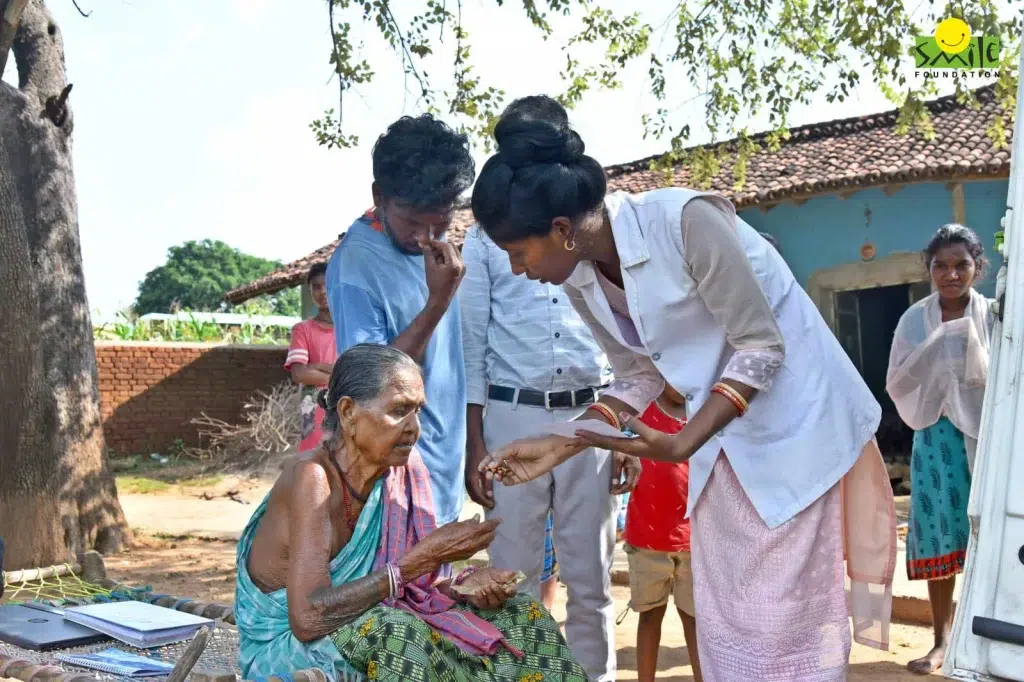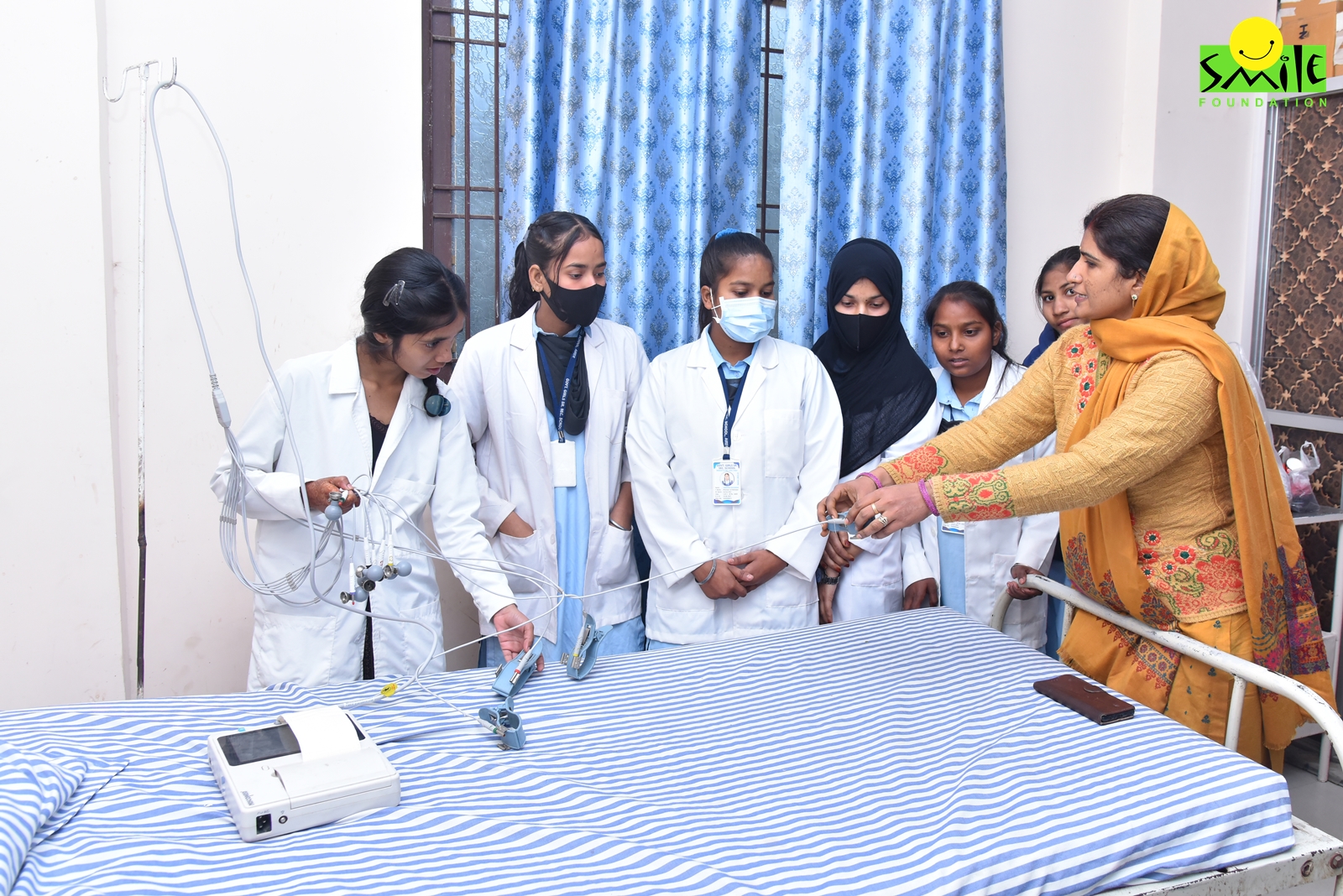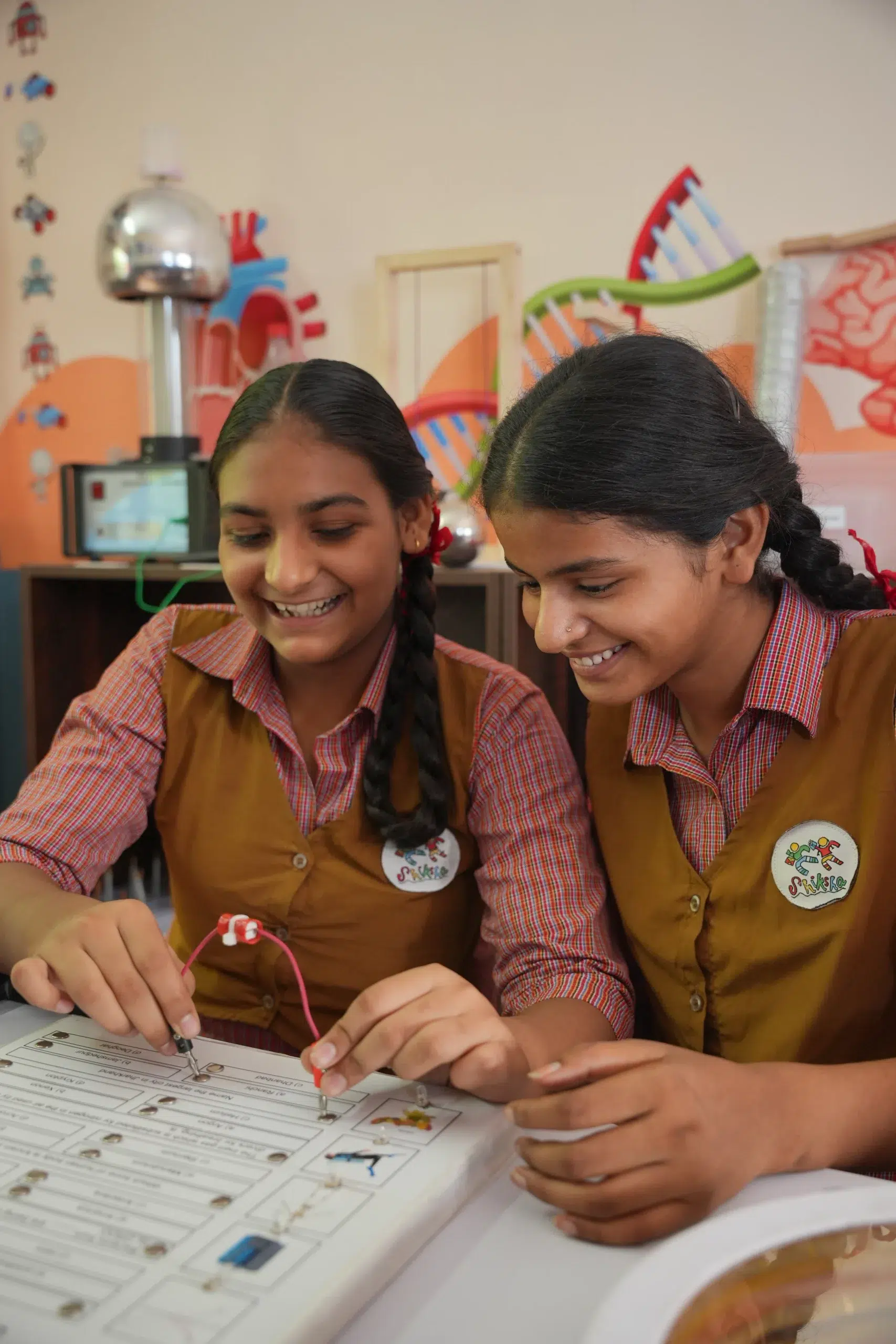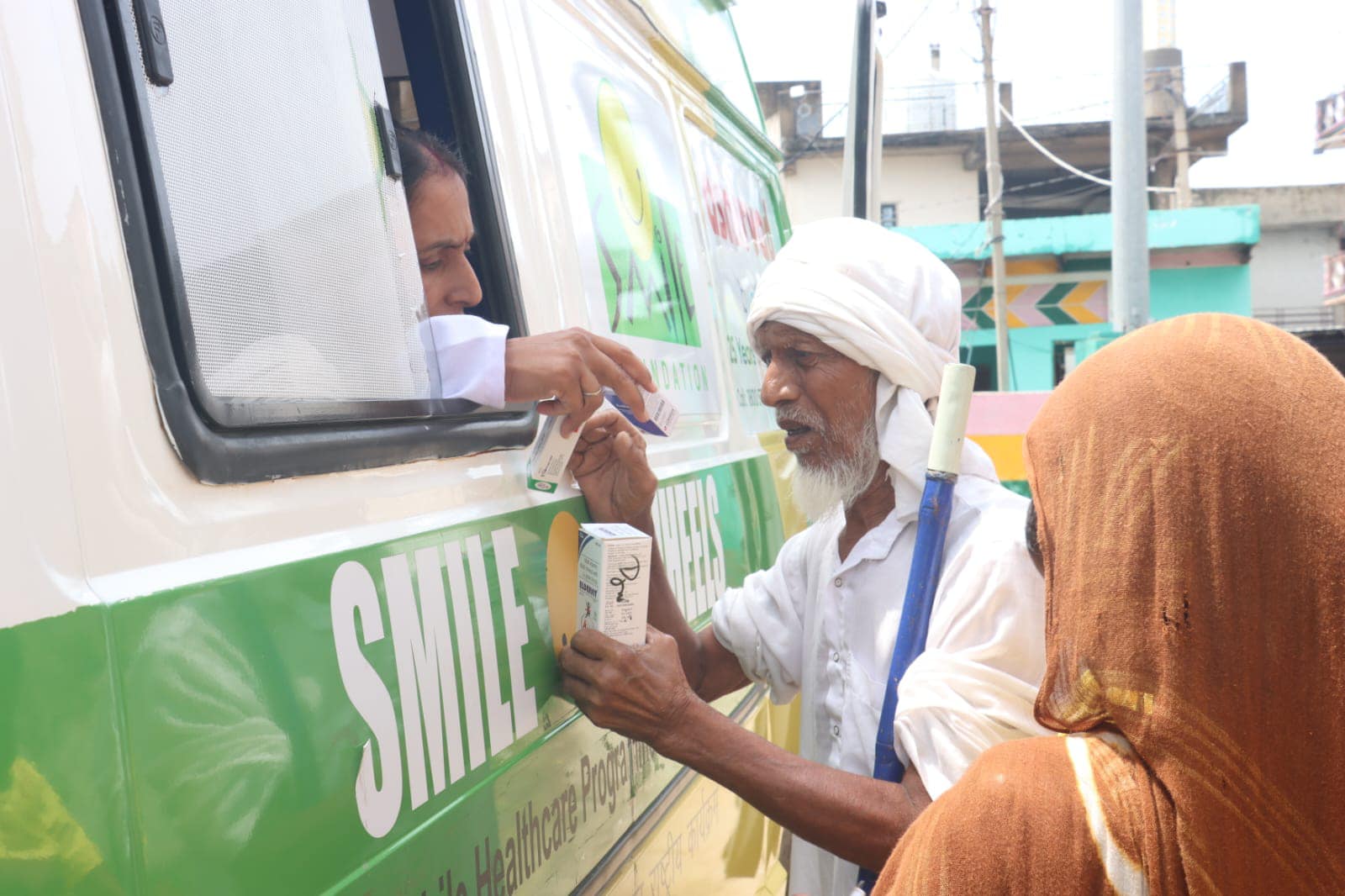India’s healthcare advancements are evident, yet inclusivity remains a challenge. Vast populations, geographical barriers, and inadequate infrastructure hinder progress, underscoring the urgent need for a more inclusive healthcare system. The growing Inequality in health care delivery and changing patterns of disease in India are adding to the basic deficiencies in healthcare delivery. This has pushed India facing the characteristic parallel dual burden of communicable and non communicable diseases. Surge of coronary heart disease(CAD), diabetes and stress along with old age infections and malnutrition have become conspicuous by this change. Therefore, in such a scenario NGO-CSR partnerships can play a pivotal role in supporting the country’s healthcare system, while solidifying its roots in the remotest corners of the country, so that an advanced healthcare ecosystem can be created.
India needs CSR in Healthcare Interventions ?
Access to quality healthcare is a fundamental right, deeply rooted in the social fabric of this nation. Built on the pillars of unity and equality, ensuring healthcare reaches every individual through the principles of Affordability, Accessibility, and Adaptability is imperative. In this pursuit, CSR partnerships with NGOs can serve as powerful catalysts, fostering robust public-private collaborations to promote resilience and healthier lives across rural India.
Carroll’s Pyramid of Corporate Social Responsibility (CSR) provides a structured framework for driving impactful healthcare initiatives. By harmonising economic, legal, ethical, and philanthropic responsibilities, it encourages healthcare providers to offer accessible and affordable care. Compliance with legal standards safeguards patient well-being, while ethical practices build trust within communities. Philanthropic efforts, including free medical camps, health education, and preventive care initiatives, uplift underserved populations. This holistic approach inspires organisations to move beyond mere profit-making, nurturing a compassionate commitment to reducing healthcare disparities.
Thus, drawing inspiration from Carroll’s Pyramid, India’s CSR healthcare goals can focus on establishing-
- Establish healthcare centres,
- Train medical professionals,
- Provide essential medical supplies and
- Establish mobile clinics and telemedicine
- Fosters health awareness and preventive care
further ensure remote areas receive timely care. Every life saved and every illness prevented is a testament to the impact of responsible corporate engagement.
HEALTHCARE CSR- Actionable Steps
- Enhance Healthcare Access
Establish mobile medical units, static clinics, and telemedicine services to reach underserved areas. Facilitate timely diagnosis, treatment, and follow-up care, ensuring continuous healthcare support in remote regions.
- Support Infrastructure Development
Upgrade existing healthcare facilities with modern medical equipment and technology. Build well-equipped primary health centres and community clinics to provide quality treatment and improve the overall healthcare ecosystem.
- Strengthen Preventive Care
Conduct regular health camps, promote vaccination drives, and offer maternal and child healthcare services. Provide health education to encourage early detection, prevention, and healthier lifestyles within rural communities.
- Facilitate Capacity Building
Train local healthcare workers, volunteers, and paramedics through certified programmes. Provide continuous learning opportunities and practical experience to enhance healthcare delivery and ensure sustainable, community-driven healthcare solutions.
Inclusive Healthcare with Smile
With a strong focus on promoting holistic development and wellbeing, Smile Foundation’s healthcare interventions are aligned with SDG 3 to ensure quality healthcare for all. Achieving Sustainable Development Goal 3 (Good Health and Well-being) requires equitable healthcare access, strengthened health systems, and disease prevention. Adapting strategies to address regional disparities ensures inclusive, resilient healthcare, promoting healthier lives and reducing mortality, especially in underserved communities.
- Specialised Teleconsultation
To address the shortage of specialist doctors in remote areas, particularly for maternal and child care and non-communicable diseases, Smile Foundation provided specialised teleconsultation services in Bengaluru, Chennai, and Hyderabad. Through real-time, screen-based consultations, communities gained access to expert medical advice without the need for long-distance travel. This initiative has significantly reduced out-of-pocket healthcare expenses, ensuring timely medical support for underserved populations.
- Strengthening Government Health Infrastructure
Primary Healthcare Centres (PHCs) are essential for delivering preventive and curative care to underserved communities. Recognising the need for infrastructure upgrades, Smile Foundation enhanced the UPHC in Anchety, Tamil Nadu, and the District Hospital in Kullu, Himachal Pradesh. Equipment provided included ECG machines, OT lights, radiant baby warmers, and biomedical waste trolleys. These improvements have increased healthcare accessibility and ensured higher-quality medical services for the most vulnerable.
- Capacity Building of Frontline Workers
Frontline health workers are vital for delivering last-mile healthcare. During the COVID-19 pandemic, their resilience and dedication were evident. To strengthen their capacity, Smile Foundation organised 23 training programmes across India, covering essential topics such as First Aid, Nutrition, Health, Immunisation, Family Planning, and Non-Communicable Diseases. By equipping health workers with practical knowledge, the initiative ensured effective healthcare delivery and strengthened community-level health resilience.
- Mobile Dental Care Units
In collaboration with Haleon, Smile Foundation deployed four Smile on Wheels Mobile Dental Units to provide free oral healthcare services in Delhi, Agra, Gurgaon, and Noida. Offering medical consultations, medicines, lab testing, oral check-ups, and treatment, the initiative has served over 48,000 people. Alongside treatment, awareness campaigns on oral hygiene and dental care were conducted, promoting healthier smiles and enhancing long-term oral health outcomes.
- Physiotherapy Centres for the Transport Community
Smile Foundation, in partnership with HDB Financial Services, established Transport Aarogyam Kendra physiotherapy and therapeutic centres in Thiruvallur, Karnataka, Unnao, Uttar Pradesh, Delhi, Ranchi, Jharkhand, and Ludhiana, Punjab. Catering to truckers and the broader transport community, the centres provided physiotherapy, general health check-ups, eye care, and referrals for advanced treatments. With over 71,000 beneficiaries, these clinics improved mobility, alleviated pain, and enhanced overall well-being.
- Promoting Health-Seeking Behaviour
Complementing curative care, Smile Foundation conducted regular Information, Education & Communication (IEC) sessions with support from healthcare professionals. Awareness initiatives addressed maternal and child health, immunisation, nutrition, hygiene, disease prevention, and geriatric care. Specific topics included antenatal check-ups, Iron and Folic Acid supplementation, breastfeeding support, management of infectious diseases, and substance abuse prevention. By empowering communities with knowledge, the programme fostered proactive healthcare-seeking behaviour and improved public health outcomes.
Partner with us
“Business need to go beyond the interest of their companies, to the communities they serve”- Ratan Tata
CSR partnerships act as a vital lifeline for remote communities, providing essential resources and support to strengthen grassroots healthcare. In regions where access to medical facilities remains limited, these partnerships play a crucial role in bridging gaps and ensuring equitable healthcare for all. Good health serves as the foundation for individual and community development, unlocking opportunities for education, employment, and sustainable livelihoods.
The significance of CSR in healthcare becomes even more evident in a country as diverse and vast as India, where geographical and socio-economic barriers persist. Collaborative interventions enable access to timely diagnosis, treatment, and preventive care, reducing the burden of disease and enhancing quality of life. Through initiatives like Smile on Wheels and the broader Health Cannot Wait programme, Smile Foundation and its 400+ global partners have extended critical healthcare support to those in need. In FY 24 alone, these efforts positively impacted 12,89,269 people across 16 states through 105 Smile on Wheels, 100+ Health Camps, and Specialised Teleconsultation services.
Each diagnosis, treatment, and consultation symbolises renewed hope and resilience within communities. By joining hands, corporates and NGOs can continue to drive transformative change, fostering healthier, more resilient societies. To explore how your organisation can contribute to equitable healthcare access, partner with us and be part of the journey towards a healthier India.









